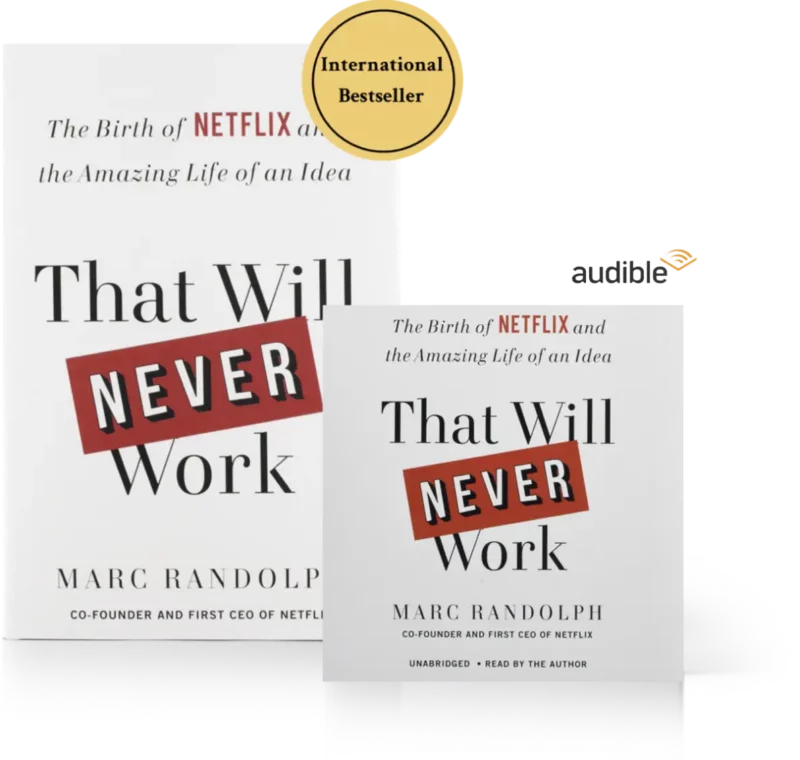The Idea Isn’t The Important Part
It’s what you do with it that matters.

I’m frequently asked whether it’s “safe” to share an idea with an investor. People wonder whether they should wait until they have a patent. Or whether they need the investor to sign a non-disclosure agreement.
The answer is always “no.” I don’t believe that ideas can really be protected. Successful companies don’t become successful because of an idea; they become successful because they took an idea and went through the process of figuring out how to make it work. In my experience, about 1% of a company’s value comes from its originating idea. The figuring it out part is responsible for the other 99%. For example:
– Slack’s original concept was as an internal communication tool for a gaming company called Tiny Speck. When the gaming project failed, the team pivoted, and Slack became a highly successful team collaboration platform.
-Instagram started out as a location-based social network called Burbn. The founders noticed that the photo-sharing part of Burbn was its most popular feature, so they shifted their focus to what became Instagram.
-Pinterest started as an app called Tote, which allowed users to shop for fashion items. But when the founders noticed that users were more interested in sharing images than shopping directly, Tote pivoted to become Pinterest.
-Groupon began as a website called “The Point,” which was designed for collective action and fundraising. This lasted until the founders realized that one of the most successful campaigns on The Point was a group discount for a pizza place.
In each case, I’m pretty sure I know what would have happened had the founders hesitated to raise money for fear of their original idea being stolen.
It’s often hard to see this from the entrepreneur’s side, since for them, that original idea is precious. And the more they pitch, the more convinced they become of its uniqueness and inevitable success.
But in my role as a seed-stage investor, I almost never hear an original idea. Even the most out-there ideas are ones that come up over and over again. And I’m fine with that because the idea doesn’t count. This business is about execution.
It’s the reason why networks and studios won’t accept your TV or movie pitches over the transom. They insist on people submitting their ideas through agents or production companies. They too hear the same ideas over and over again and are trying to protect themselves against claims that they stole someone’s idea. (They also use intermediaries because they can rely on them to ensure that if the idea is a good one, you have the skills needed to make it happen.)
This is also the reason why investors won’t sign non-disclosures. The odds are very good they have already heard something very similar to what you’re going to be pitching, and they don’t want to open themselves to potential litigation when someone else in their portfolio coincidentally comes out with the same thing.
If you do get into pitch, they’re not really paying that much attention to the idea anyway—remember, it’s probably not new to them. Instead, they’ll be listening carefully to hear how you’re planning on attacking the problem. They want to see what traction you have. They want to understand whether you’ve been able to build a team. And they want to get a sense of whether you have the persistence and creativity to see it through when that first idea inevitably tanks.
There are certainly some bad actors out there who will take your idea and give it to someone else. That’s wrong. But it doesn’t mean that your idea will work for that other team, either. Nor does having your idea “stolen” mean that it won’t still work for you. In both cases, possessing the idea isn’t what’s important—it’s what gets done with it.
If you’re wiggling in your seat right now, dying to leave me a long comment about the time you had an idea stolen, or if you can’t wait to point out some exception to my general principle, let me stop you right there. Yes, there are certainly times when the idea is important.
These are usually cases where the “idea” is the result of extensive iteration. For example, in the pharmaceutical industry, a company might cycle through thousands of different compounds to achieve some desired biological effect. If they find what they are looking for on their 997th try, then of course they are going to want to keep it to themselves for as long as possible. This is a very legitimate reason for secrecy, not to mention having strong IP protection.
But they are protecting the results of those 997 iterations. They are not patenting the idea that maybe there is a cure for baldness. Or even that the cure for baldness may come from the genes of hairless animals. They are patenting the end result of testing hundreds of different hairless species, hundreds of the possible genes that might control hair growth, and hundreds of possible ways to make it work for humans.
So, I’ll bet you can guess what I think about using IP to protect your idea. In 99.3% of the time, it’s a complete waste because…OK, all together now…“The Idea Is Not the Important Part.”
If you’ve ever browsed my LinkedIn page, you’ll see that I have three patents for some of the business methods we used to build Netflix. But before you accuse me of hypocrisy, I wasn’t patenting our original idea. I was patenting the discoveries we made after trying hundreds of different approaches—almost all of which didn’t work.
When you build a business, you go through much the same process a pharmaceutical company does. You start with a raw idea and you iterate. You try different approaches. And if you’re lucky, and stumble on something that works (and is truly novel) on your 997th attempt? Well then get the IP protection you need.
But after all this, if you’re still hesitant to raise money because you fear having your idea stolen by an investor? Fine. Just don’t raise money.
These days, almost all the startups I see were started without funding. They use validation hacking, no-code processes, and manual methods—things that are completely non-scalable—all to prove their idea has merit before they ask for money.
I’m not saying that having money doesn’t make it easier. But believing you can’t start because no one will give you money is a false barrier. It’s just as false as believing you can’t start because someone will steal your idea.
So don’t worry about sharing your idea widely. The more feedback you get, the closer you’ll be to figuring out how to make it happen. Having your idea stolen will not be the reason you don’t succeed.
And don’t worry about pitching without getting an NDA. It may take dozens of tries before you find someone to believe in you. Encountering an unethical VC will not be the reason you don’t succeed. But you do need to worry about every day you spend waiting to get started. Because if there’s one certainty about building a successful company, it’s that if you never start, that will be the reason you don’t succeed.
To find other things I’ve written and much more, check out MarcRandolph.com
RECOMMENDED FOR YOU
I’ve Changed My Mind
Podcast Episode 72
Is it a Culture Problem or a Hiring Problem?
October 25, 2022 • 38 min
